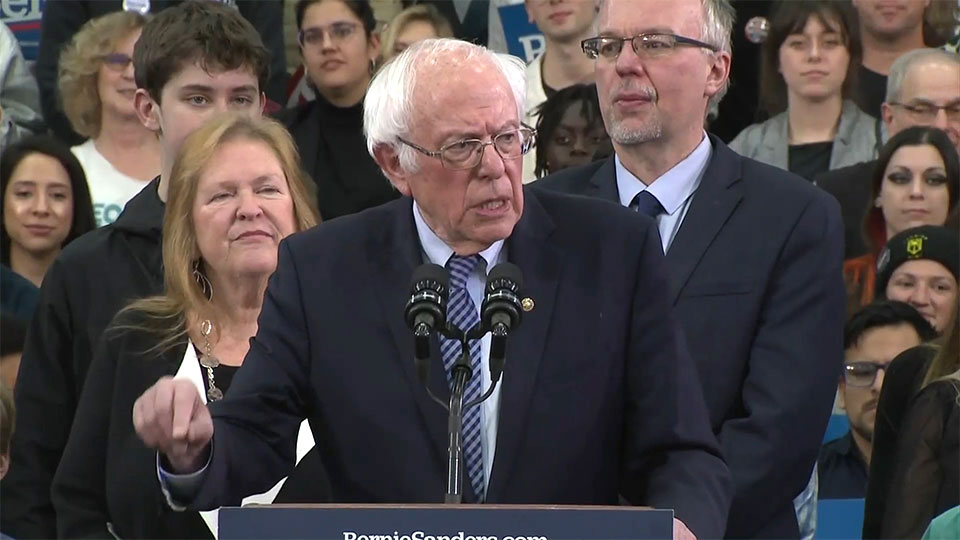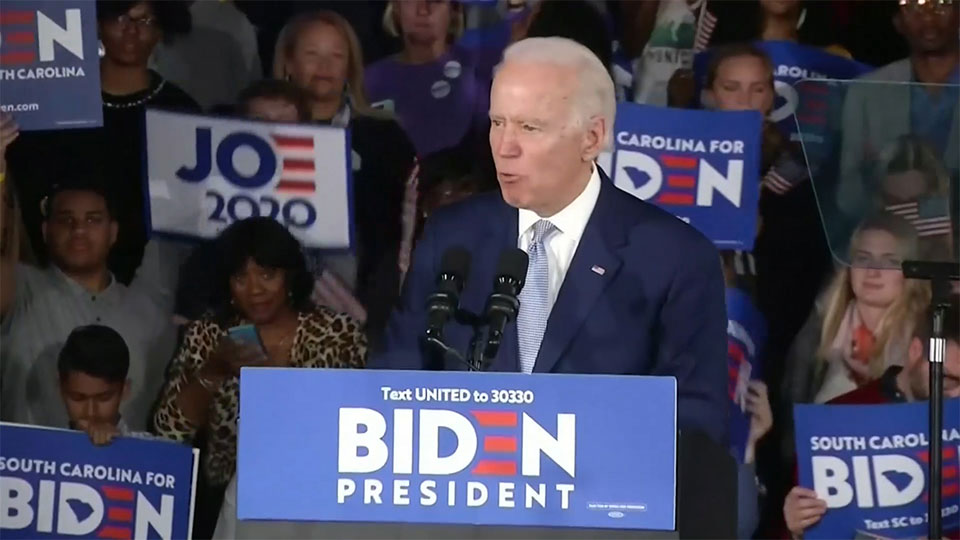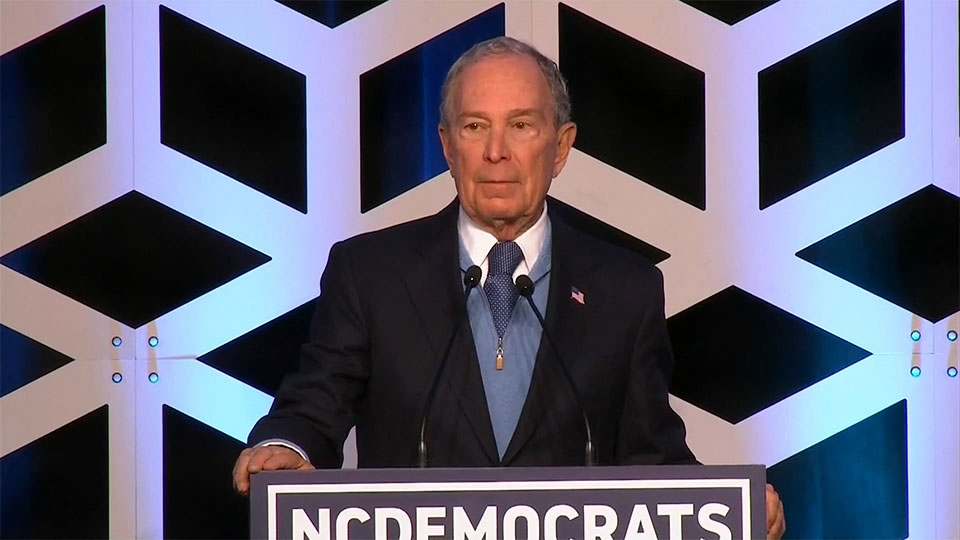Henry Brady, the dean of UC Berkeley's Goldman School of Public Policy, says he believes, come Wednesday, several candidates will no longer be in the race.
"They're going to have to drop out because they won't have the money to go on," he says. "Amy Klobuchar, Pete Buttigieg, and maybe Joe Biden might have that problem unless they all do well. And Elizabeth Warren might have that problem."
Brady says only two candidates can be reliably expected to continue past Tuesday. One is Michael Bloomberg, the billionaire former mayor of New York City who is paying for his own campaign. The other is Bernie Sanders, whose young and working class support base continues to donate record-breaking amounts of money.
In California, the state which offers the biggest delegate prize of Super Tuesday, enthusiasm for Sanders can be felt everywhere. I recently accompanied members of the campaign as they knocked on doors across Los Angeles. No matter what neighborhood we were in, people constantly approached to gush about their love for Sanders. At one point, we entered a barbershop and were immediately greeted by shouts of support.
"This is Bernie's barbershop!"
Carlos Marroquin, a campaign volunteer, says it is a palpable sense of authenticity which enables a 78-year-old senator from Vermont to connect with millions of young people across the country.
"He speaks to me," Marroquin says. "He connects with me, which is the most important thing."
Brady gives a similar assessment.
"Sanders has galvanized a lot of people just because of his very straightforward style and the fact that he stayed on message," Brady says. "He keeps talking about the same thing. And the same thing for him is that this is a nation that has too many rich people and that the problem in America is inequality and that something has to be done to help working people."

Sanders' success in the early states and consistently strong polling numbers in the remaining schedule have put him in the position of firm frontrunner, replacing former Vice President Joe Biden. Many expected Biden to coast to the nomination when he entered the race last April but he has struggled so far. It remains to be seen whether his impressive victory in Saturday's South Carolina primary will be enough to revive a faltering campaign.

Polls increasingly indicate that Bloomberg may be the one candidate with a reasonable chance of challenging Sanders beyond Tuesday. His numbers have been rising on the back of relentless spending on ads.
"Bloomberg's been spending enormous amounts of money across the United States and certainly in California," Brady says. "You can hardly turn on the television in California without seeing a Bloomberg ad. Sanders, for example, spent $25 million in January and Bloomberg spent something like $350 million across the United States."
But Bloomberg's numbers dipped after his performance in the last debate, which was widely panned. And it remains to be seen if his blank check approach will be enough to distract voters from a political past that many progressives believe should disqualify him from being a Democratic candidate. Bloomberg has been the subject of numerous sexual harassment lawsuits filed by former employees, stemming from his time as a media executive. And as mayor of New York, he supported the widespread use of a police tactic known as "Stop and Frisk", which statistics show disproportionately affected young black and Latino men. Experts largely agree that it was a racist policy that led to a rise in police brutality and Bloomberg himself has apologized for its use.

As Tuesday nears, many voters are still undecided on who they will support. Barbi Appelquist, a lawyer living in Santa Monica, says she will pick between Amy Klobuchar, Pete Buttigieg, and Elizabeth Warren.
When asked about Sanders, she says she doesn't agree with his plans to institute universal healthcare. Appelquist is a two-time cancer survivor, and she says her battles with the illness have convinced her of the need for every American to have access to affordable healthcare. But she says she doesn't believe the Sanders approach is the way to achieve this.
"When we talk about this idea of Medicare For All, or a socialized, 100 percent socialized, medical system, how are we going to innovate our medical care, how are we going to support research and development," she asks.
But for some voters, universal healthcare is the only way to solve the problem of ballooning medical costs. Two years ago, Ady Barkan was diagnosed with Amyotrophic Lateral Sclerosis, or ALS, a degenerative disease that has left him largely paralyzed. Barkan's condition is such that he can now only speak with the use of a specialized computer.
Since falling ill, Barkan has become a prominent progressive activist and has spoken to nearly every Democratic candidate about their healthcare policies. He supports Elizabeth Warren, who is campaigning on a moderate version of healthcare for all, but he says he would be happy with a Sanders presidency.
"I have had to confront the reality of our medical system over the past few years, like being billed thousands and thousands of dollars for medical care that would be provided free of charge in countries like Japan," Barkan says. "It's impossible not to see that we need to radically rethink healthcare in this country."
The field will almost certainly shrink after Tuesday. The question going forward will be whether Democratic voters agree with the progressive vision of the party, presented by Sanders, or a more moderate approach, led by the likes of Biden and Bloomberg.
*At the time of the interviews with Henry Brady and Barbi Appelquist, Pete Buttigieg was running. He has since suspended his campaign.

